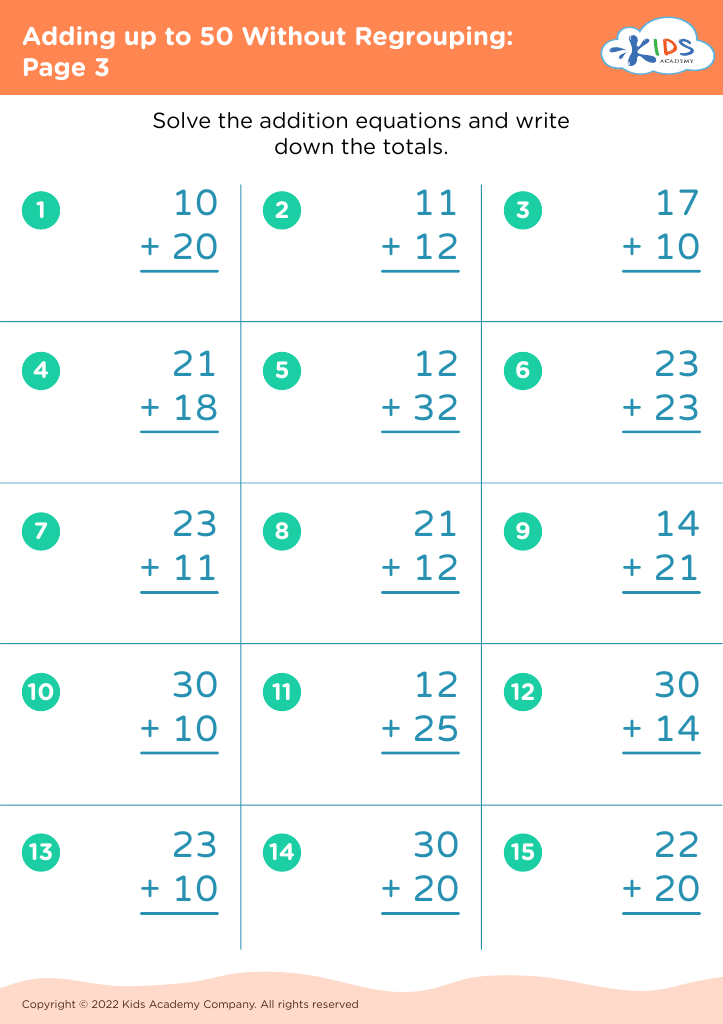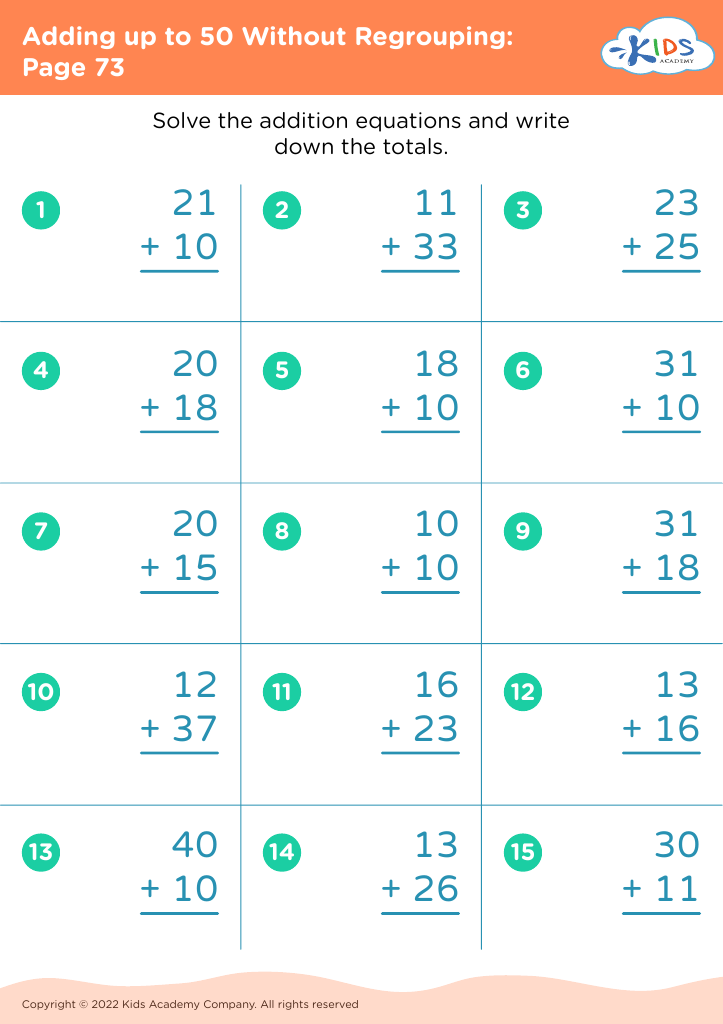Problem Solving Adding up to 50 Worksheets for Ages 7-9
3 filtered results
-
From - To
Enhance your child's math skills with our "Problem Solving Adding up to 50 Worksheets" designed specifically for ages 7-9. These engaging worksheets provide a fun way for young learners to practice addition problems while developing critical thinking and problem-solving skills. Each worksheet features a variety of scenarios that challenge students to apply their knowledge of adding numbers up to 50. By integrating math with real-life situations, children will build confidence and a solid foundation in arithmetic. Ideal for home learning or classroom activities, our worksheets support diverse learning styles and make math enjoyable. Boost your child’s math competence today!
Problem solving, particularly with the goal of adding up to 50, is a crucial skill for children aged 7-9. This age group is at a pivotal stage in their mathematical development, transitioning from simple arithmetic to more complex problem-solving strategies. Understanding how to combine numbers effectively to reach a specific total helps students grasp foundational concepts that they will build upon in later grades.
Parents and teachers should care about this skill for several reasons. Firstly, mastering addition up to 50 enhances a child’s number sense, making it easier for them to tackle larger numbers and more complex equations in the future. It also fosters critical thinking and logical reasoning, as children learn to strategize how to combine different numbers efficiently.
Moreover, problem solving is not only essential for mathematics but also for real-life situations. Whether budgeting pocket money or shopping, these skills support children’s ability to make informed decisions. Engaging students in fun, interactive problems enhances their motivation and builds confidence, setting the groundwork for a positive attitude toward learning. Thus, prioritizing problem solving in early education equips children with the necessary tools for academic and everyday success.















